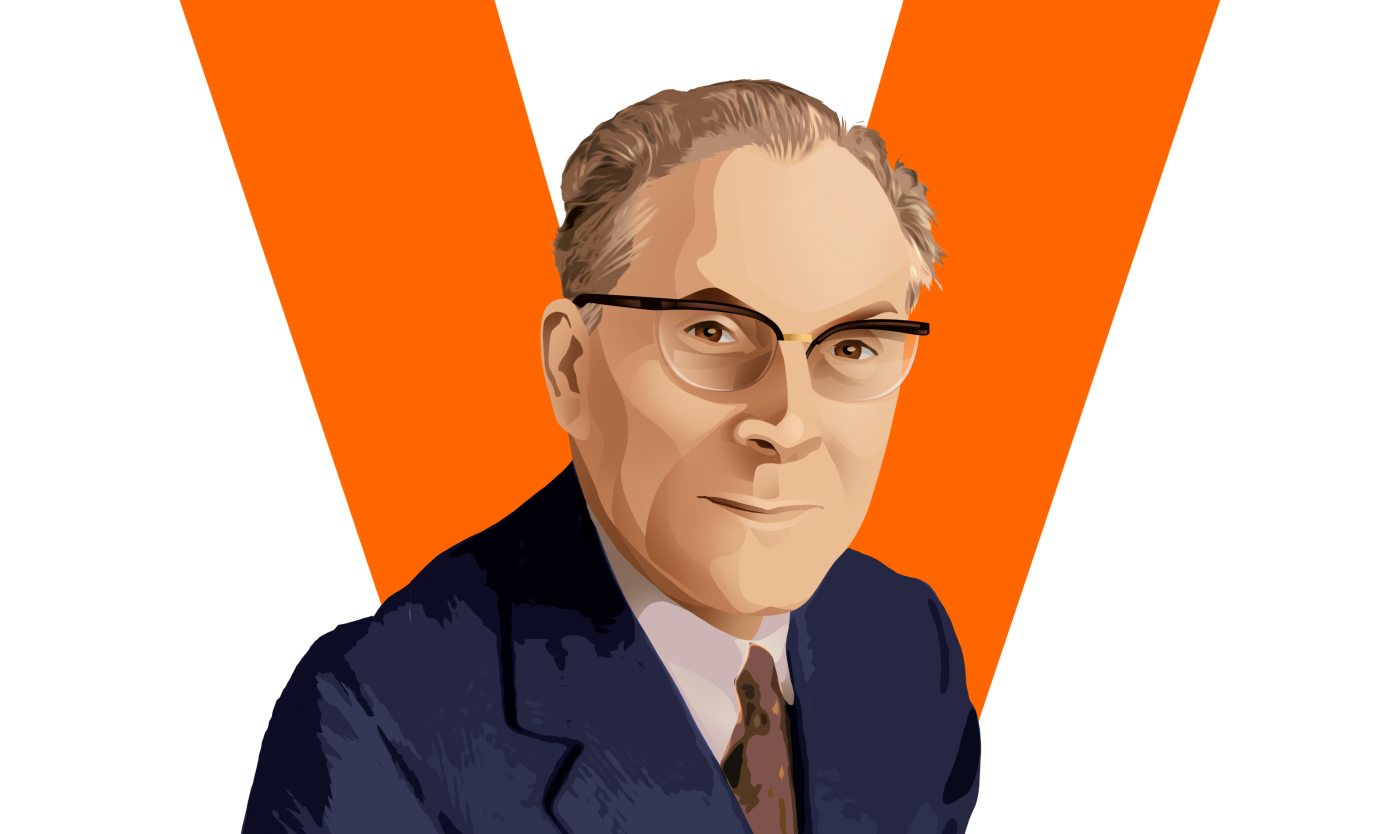
Karel Cuypers
1902 - 1986
Karel Cuypers was an Antwerp-born humanist, educator, and astronomer. He combined teaching with science and played an important role in the secular humanist movement in Flanders.
Karel Cuypers was born in Antwerp 26 May 1902 in Antwerp's working-class Seefhoek neighbourhood. His parents sent him to school in the city education system. And there, right from primary school, his interest in astronomy was awakened by a number of teachers with a strong liberal commitment.
This urban education clearly gave direction to his life: Karel Cuypers developed into a prominent humanist, educator and astrophysicist.
So in 1921, Karel Cuypers returned as a teacher to the urban education that had shaped him so much. He would always refer to himself as a ‘teacher’ in his later life; even if he took on increasingly larger pedagogical roles by starting to train future teachers at the Municipal Normal School from 1928.
He had great aptitude for mathematics and science and therefore taught geography, mathematical geography and economics in addition to pure mathematics. Karel Cuypers was also known for the great attention he paid to the fundamentals of scientific method and evidence within his courses. These were things he valued many times more highly than the scholarly acquisition of factual knowledge.
It should therefore come as no surprise that this attitude earned him the reputation of a philosopher among his pupils and encouraged him to obtain the university degree in mathematics in Ghent in 1935, only to be promoted three years later to Doctor of Astronomy by Professor Hernri Louis Verlinden, an expert in the theory of relativity and quantum mechanics.
All this time, Karel Cuypers had continued to teach at the Normal School of Antwerp. Even under the occupation, he remained in post and, from an anti-fascist stance, became silently but strongly involved in the Teachers' Association of Official Secondary Education. This developed into a branch of the Independence Front that recruited in the liberal middle classes of the municipal and state education system, to which he belonged. This cannot be doubted as he had also joined the Masonic lodge Marnix van SInt-Aldegonde since 1938, named after the 16th-century ‘hero’ of the Beggars. That joining had given more depth to his atheistic outlook on life , which stemmed from his scientific quest among the stars .
LOMO was not an armed but a bourgeois resistance movement that mainly worked to keep high school students out of compulsory labour service and ensured that student lists stayed out of German hands.
Cuypers was never suspected or caught. He was able to continue his resistance in silence until liberation on 8 May 1944. And he also continued to build on his humanist outlook on life. For instance, he became the first president of the
Humansite Alliance in Flanders in 1952 and, as an atheist humanist, he founded a new lodge in Antwerp in 1956: De Geuzen, which manifestly rejected the religious coercion of English Freemasonry.
Karel Cuypers gained recognition not only with the status of resistor. He was also put in charge of a new atheneum in Hoboken in 1947, where today a street is even named after him. A star scientist, he was appointed professor in his field at ULB in 1962.
The Vrijzinnig ontmoetingscentrum in the Lange Leemstraat in Antwerp, where the headquarters of the HV was located for a long time, as well as the archive and study centre of this organisation, were named after him after his death in 1986.
The latter centre was finally transformed in 2012, through a partnership with the archives of the VUB, into CAVA, the centre for academic and liberal archives and housed on the Etterbeek campus.